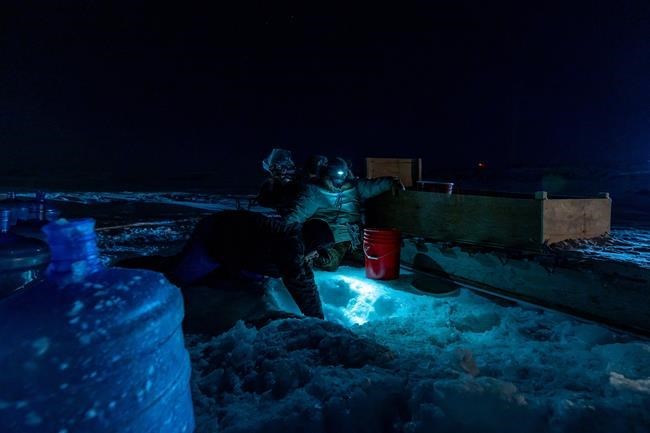IQALUIT, NUNAVUT ŌĆö The City of Iqaluit has set up a water-filling station after traces of fuel were found in the Nunavut capital's drinking water last week for the second time in recent months.
Iqaluit residents reported smelling fuel in their tap water and the city confirmed trace amounts had entered the distribution network.
The city said a filling station with river water was to open Monday and continue until Friday, but the water would need to be boiled before drinking.
It said Iqaluit's drinking water continued to test within sa╣·╝╩┤½├Į's drinking water standards and a do-not-consume order was not issued.
Iqaluit's 8,000 residents could not drink tap water for 60 days late last year after it was found to be contaminated with fuel.
Last fall, the city dug up an old underground fuel tank, thought to be the source of contamination, next to the water treatment plant.
The city said it was continuing to flush out any remaining hydrocarbons.┬Ā
"While a do-not-consume order has not been issued, and the drinking water in the distribution system continues to test well below the screening values for health, the City is opening a water depot for residents to fill their own jugs with river water as an alternative option," the city said in a news release.
The city also said it would not be distributing bottled water.
In a statement, Nunavut's Health Department said there is "no evidence that a do-not-consume order is necessary."
"Sampling found trace amounts of fuel at the water treatment plant that were below The Canadian guidelines for drinking water quality and considered safe for consumption," the statement said.┬Ā
Followup sampling did not detect any fuel in the water, it said.
The department said it is working with the city to monitor the water and is taking "additional steps to reduce the risks of contamination."
This report by The Canadian Press was first published Jan. 17, 2022.┬Ā
The Canadian Press



